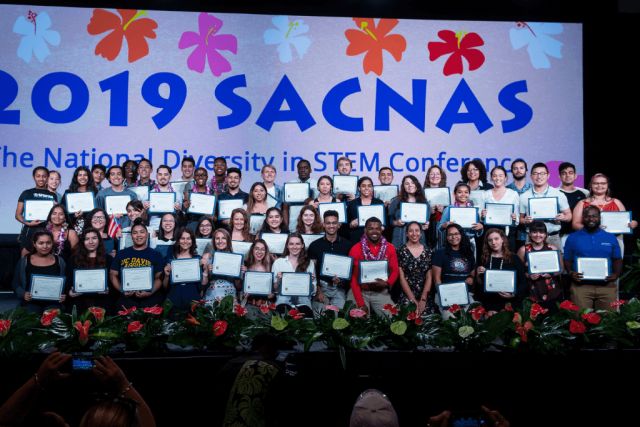
Climate change science, indigenous knowledge, communication and the need for true diversity in science, technology, engineering, and math (STEM) were among the key issues addressed at the 2019 National Diversity in STEM Conference, which was hosted in Hawai’i from Oct. 31 to Nov. 2 by the Society for Advancement of Chicanos/Hispanics & Native Americans in Science (SACNAS).
This year’s seminars were led by Native Hawaiian and indigenous scientists, and included sessions on the effects of climate change on the Pacific islands; the consequences of rising temperatures, ice melt, drought and hurricanes on aquatic invertebrate island communities in Hawaii, Antarctica, Pacific Northwest, and Puerto Rico, as well as how Indigenous and western sciences are woven together for the understanding of STEM subjects.
“Without a doubt, climate change is our biggest shared global challenge,” said SACNAS President Dr. Sonia Zárate in a statement. By hosting the conference in Hawai’i, a community at the forefront of the climate crisis, we not only humanize the toll our combined behaviors are having on our planet, but we are able to learn about the traditional knowledge that serves as a solution to this greatest of challenges.”
This year’s keynote address was delivered by the Republic of the Marshall Islands President Hilda Heine. Dr. Heine. She issued a call to stand united and take climate action that particularly addresses the challenges of those first and worst impacted by climate change such as atoll nations.
SACNAS has a 46-year history of fostering and promoting success for underrepresented minorities in STEM and leveling the playing field for first-generation college students of color by offering mentoring, professional development, and networking opportunities.
The U.S. Army Corps of Engineers has been tasked with…
Brown and Caldwell, a leading environmental engineering and construction firm,…
Humboldt State University, one of four campuses within the California…